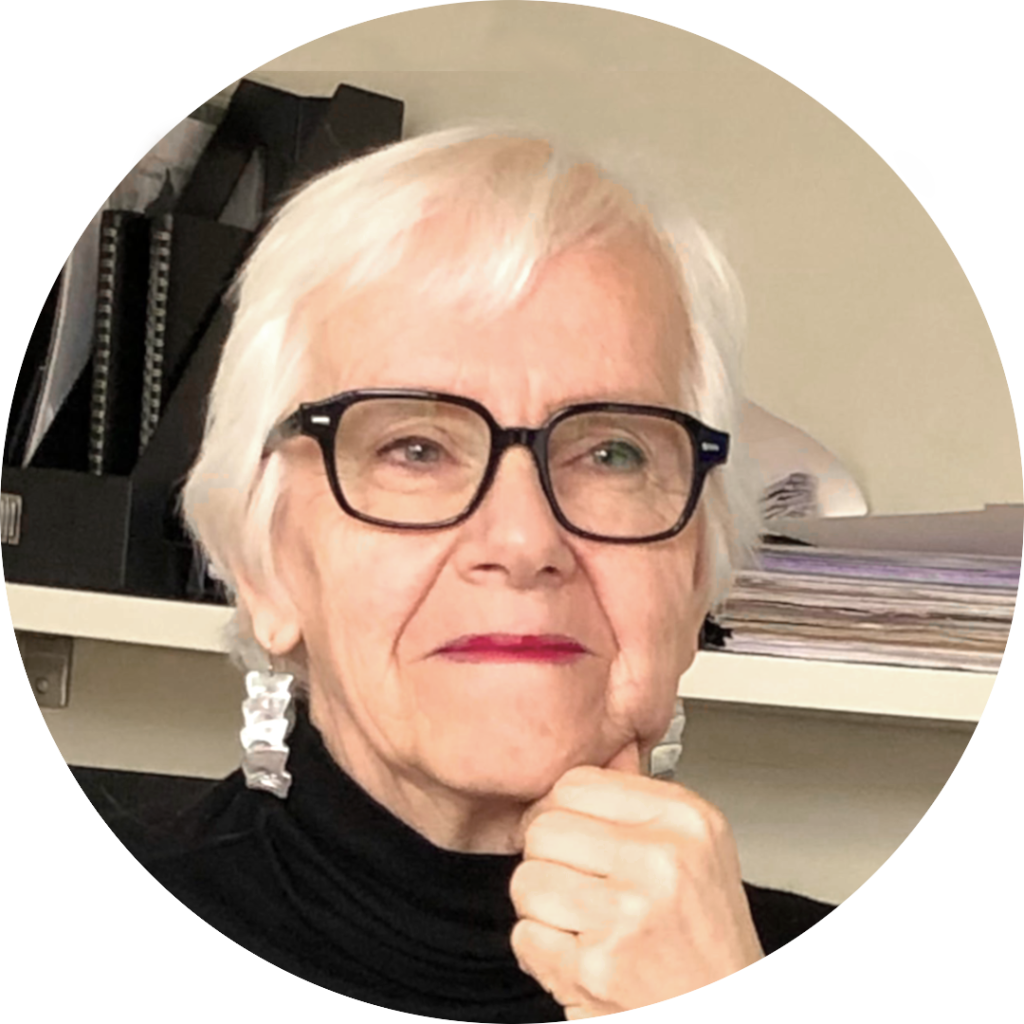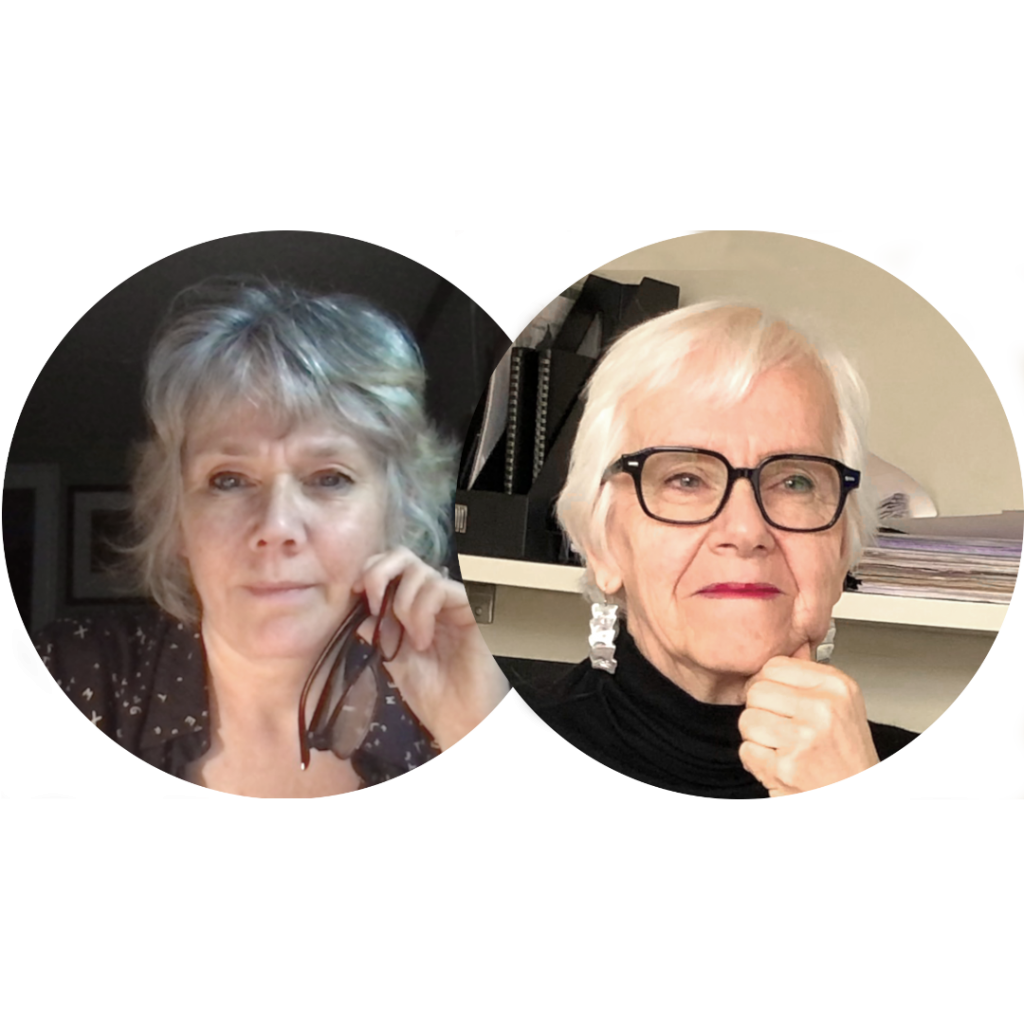Organising Protest:
Where is our Systems Psychodynamic thinking on
SOCIAL MOVEMENTS?
🔖 PRESENTATION
Paper (parallel)
📆 DATE
Friday 9 Sep 2022
⏰ MELBOURNE TIME
5.00 - 7.00 pm
⏰ LOCAL START TIME
time start

Dr Jo-anne Carlyle
JC Cons Clin Foren Psychol., Psychoanalytic Psychotherapist, Organisational Consultant; BW Director of Bureau Kensington Consulting, PSYCTC.com and ICI, UK
Jo-anne Carlyle, PhD worked as a clinician, researcher, teacher and consultant with strong interests in social justice for over 30 years. She worked at the Tavistock Clinic, Broadmoor and Bethlem Hospitals as well as in independent practice. She is now transitioning to work with greater social impact for the final phase of her career.
⏰ DURATION
120 minutes

Dr Barbara Williams
Director, Bureau Kensington Consulting, Canada
Barbara Williams EdD, is the Director of Bureau Kensington Consulting in Toronto, a psychoanalytically oriented organizational consulting practice focusing on leadership development, shared leadership and governance with international social justice and women’s rights organizations, movement-building organizations, and movements, their leaders and boards. She is a Guest of the Toronto Psychoanalytic Society and an Advisory Editor for the Journal of Organizational and Social Dynamics. She is the founder of Insight for Community Impact (ICI), a group relations (GR) learning community in Toronto, co-developing GR for supporting social justice leaders and activists, their communities and organizations.
Problematising our orthodoxies
“I am always more interested in what I am about to do than what I have already done”
Rachel Carson
Rachel Carson’s (1962) classic volume Silent Spring exposed the hazards of the pesticide DDT, eloquently questioned humanity’s faith in technological progress and helped set the stage for the environmental movement. However, it was initially met with widespread denial and disavowal. Sixty years on, we are finally beginning to see more acceptance of the ‘truth’ of her dire warnings. Why is it that critiques of ‘accepted’ truths and practices are so difficult to think or engage with? What can we learn from social movements that do attempt to counter such orthodoxies – particularly those challenging Global North neo-liberalisms, and Euro-centric modes of thought?
The presentation interrogates the question posed in the conference invitation “what can systems psycho-dynamics add to an understanding of [social]… movements” with a counter question: “what can social movements add to an understanding of systems psycho-dynamics”. How can we contend with the denial and disavowals in which we participate in our systems-dynamics work and in what way can critical progressive social movements helpfully challenge or mitigate these defences? We make use of our experience delivering innovative Group Relations (GR) conferences grounded in social movement politics to support our conceptual efforts.
Applying thinking emerging from social movements, we endeavour to create the space for thinking about the ethos, ethics, power, and politic of our systems psycho-dynamic work and we offer an invitation to explore what different modes of thinking are needed, possible and emergent to allow for development.
Owning that we inevitably draw on traditional frameworks, we also contend that our theoretical models stem from a colonialist and European post-Reformation pedagogy that requires a radical re-evaluation and new lexicon – in particular conversational and dialogic ones. The power differentials of Global North and South and the impact of this power axis of globalised economies is linked to worsening inequalities and disparities globally, generationally, and in terms of the impact of climate change. Insights about these matters and their relevance to systems psycho-dynamic thinking are some of the contribution social movements can make to our discourse and practices.
The presentation problematises key concepts that are used in systems psycho-dynamics thinking as they are embedded in GR work and reviews them from a critical social justice lens, highlighting where ‘orthodoxies’ emerge and where the reliance of established normativities are pervasive. We re-imagine these core concepts, from our experience with several recent GR conferences informed by social movements grounded in social justice which have challenged our own thinking and practice. We look specifically at: primary task; boundaries; containment; authority; consultancy and leadership roles. We will also explore the relationship of projection, projective identification and splitting as they apply to the binarisms that beset social processes and in doing this we will examine how individual and collective anxiety gets rigidified and leads to static identifications in ways that inhibit examination of power-oppressive relationships with the consequence of preventing new thinking and accountability.
Can we make use of progressive social movement’s challenges to our field and expand our understanding of social justice processes to facilitate learning and containment with a wider range of actors to invite rather than resist new forms of knowing?
“One way to open your eyes is to ask yourself, ‘what if I had never seen this before? What if I knew I would never see it again?’ ”
Rachel Carson
Further Reading:
Carson, R. (1962) Silent Spring. Cambridge (Mass). Houghton Mifflin Co. & Riverside Press.
Goodwin, J & Jasper, M. 2014. The Social Movement Reader. Cases and Concepts. London, Wiley-Blackwell.
JASS, 2021. Feminist Movement Building. https://justassociates.org/what-we-do/feminist-movement-building/ Long, S. (ed). 2013. Socioanalytic Methods. London: Karnac
Day(s)
:
Hour(s)
:
Minute(s)
:
Second(s)
Session schedule
5 MINS
Introduction
30 MINS
Paper presentation
20 MINS
Small group discussion; impressions of the paper and developing questions for the presenter
20 MINS
Discussion forum with the presenter; moderated for the speaker to elaborate their ideas
10 MINS
Discussion forum with the presenter; themes from the discussions
5 MINS
Break
30 MINS
Whole symposium open reflection discussion
Share this presentation!
Parallel Paper Presentations
The following are presenting at this time

DR JO-ANNE CARLYLE & BARBARA WILLIAMS
Problematising our orthodoxies

GREG COOK, ALLAN SHAFER & JENNY SMITH
The Dynamics of the 'Seeking Asylum Project'

